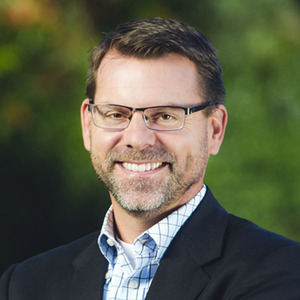Recently I was reading through the Sermon on the Mount and I had to stop and chuckle. I got to the passage where Jesus is teaching not to worry about food, water and clothing (Matt. 6:25–34), and I noticed for the first time that the editors of the New American Standard Bible titled that section: “The Cure for Anxiety.” That’s quite a claim. I thought to myself: Does Jesus possess the cure for anxiety? If so, a lot of psychologists and drug companies are in trouble!
As I continued reading with that title in mind, I saw more clearly that Jesus does present a way of making worry a pointless hangover from a former way of viewing our lives. Jesus’ central point is this: “Do not worry ... for your heavenly Father knows that you need all these things” (6:31, 32). The idea is that our Father knows what we truly need, he highly values us, and he competently cares for those he values. As we learn to immerse ourselves in that reality — to seek first God’s rule in our lives — anxiety will be a diminishing concern. It’s not that things won’t go wrong (that is never promised). But in light of our loving, competent Father’s care, even in the face of life’s severest challenges, we can relax.
Nonetheless, we all worry. If not about food, clothing and water, then probably about mortgage payments, what people think of us, how our kids will turn out, our health and so on. Jesus, it seems, was well aware of this. In the midst of his teaching regarding the cure for anxiety, Jesus exhibits his own psychological realism: “O ye of little faith,” he says (6:30). Jesus knows that immersing ourselves into the rule and reign of God is easier said than done. All of us, to varying degrees, are firmly habituated to seek all sorts of other ways of caring for ourselves as a means of dealing with worry rather than a firm and utter reliance on the resources of God’s kingdom. So it turns out that the psychologists and drug companies are not out of business yet, even amongst those who know of Jesus’ cure. For we too are of little faith, and we need all the help we can get to grow into a deeper, more constant confidence that God is with us and for us in a manner that makes worry pointless. There is much theory and research within contemporary psychology that can help us understand the way forward in developing the kind of trust and dependence that the Christian life requires.
This is one of many examples where the interplay of psychology and theology can assist us in minding our hearts. Throughout church history, Christians have engaged the best psychology of their times to more fully understand how to address the emotional, relational, cognitive and developmental issues that arise in human life. In light of this long history of reflection, here at Biola University’s Center for Christian Thought we are extremely excited about our 2013–14 theme, “Psychology and
Spiritual Formation.”
In the most recent issue of our bulletin, The Table, we’ve featured a variety of thinkers and scholars interacting with just a few of the fascinating ways in which the Christian wisdom tradition and contemporary psychology can be brought into conversation to further our understanding of what it means to become conformed to the image of Christ as we seek to be Christ to those in need.
Steve L. Porter (’92, M.A. ’95) is a director of the Biola University Center for Christian Thought as well as associate professor of theology, spiritual formation and philosophy at Biola’s Talbot School of Theology and at Rosemead School of Psychology. He holds a Ph.D. from the University of Southern California.
This issue’s Last Word comes from the Biola University Center for Christian Thought’s online bulletin, The Table. This article is adapted from a column in the Fall 2013 issue.
 Biola University
Biola University
.jpg)

